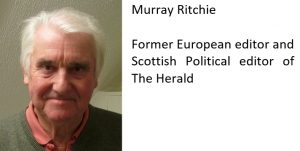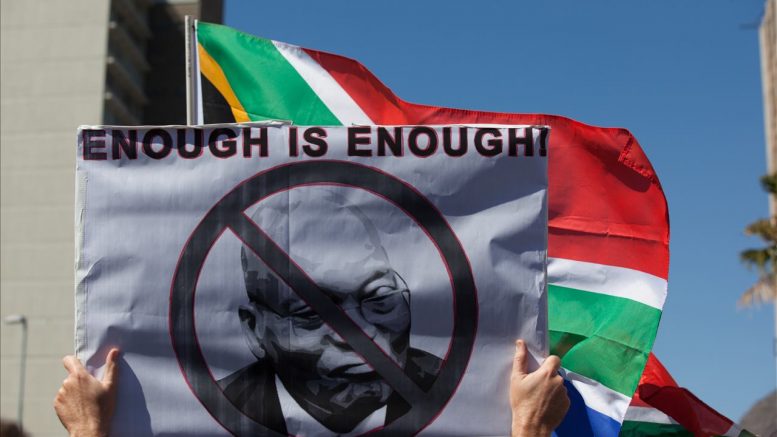Murray Ritchie poses the question: With the emergence of Cyril Ramaphosa as president-in-waiting of South Africa can the so-called economic powerhouse of Africa finally live up to expectations?
Not since Mandela has there been such excitement and hope in South Africa, that vast and beautiful – and cursed – country where the gap between rich and poor is regarded as among the widest in the world, along with Brazil and India.
Apartheid’s poisonous legacy still stultifies confidence and aspiration for the majority in a land where the rich, mainly whites, fret about their rainbow nation joining the slide to poverty afflicting most of the continent.
Poverty in the case of South Africa is relative. Black South Africans are the most prosperous or least poor in sub-Saharan Africa. Yet they live in a different world from their wealthy minority fellow citizens.
Take a trip up Table Mountain with the tourists and see how the homes of the elite are surrounded by razor wire and alarm systems with “armed rapid response” signs on the perimeter fences. Behind them live families enjoying the beautiful life, sunshine and swimming pools in an atmosphere of constant insecurity. South Africa is a world leader in crime.
And then take a trip to any township where the majority live in hellish, grinding misery with no social security safety net and a gloomy sense of despair and disillusionment.
These poor people are the victims of the false dawn that rose over South Africa the moment Mandela walked free. He was a great man, no doubt, but delivering economic salvation was simply beyond him.
For powerhouse South Africa the challenge so far has proved insurmountable. Mandela’s legacy was peace and reconciliation but minimal economic advance.
His successor, Jacob Zuma, whose sleazy and discredited presidency is mercifully drawing to a close, made matters worse. He enriched himself and his cronies, no doubt, but for all the difference he made to his people he might as well have never existed.
We’ll see if Zuma, now an ageing and increasingly unpopular figure, ends up in jail or exile. The charges against him for alleged corruption are extensive and still to be tested.
Take a trip to any township where the majority live in hellish, grinding misery with no social security safety net and a gloomy sense of despair and disillusionment
What is promising and truly exciting is the African National Congress’ choice of successor. Cyril Ramaphosa is not your typical African politician. His record as a trade unionist, sensible nationalist and latterly rich businessman, shows him to be a thinker and a voice for reason.

He is steeped in South Africa politics – he is 65 with a lifetime of activism behind him – and is regarded as a different type of African leader. Not for him the looting of his country with the support of a bribed army. Nor is he known for tribal sectarianism.
Best of all he is not tainted by corruption. His wealth, which is considerable, is widely seen as having been earned honestly from big business, much of it gained from inward investors looking for a talented and trustworthy partner.
South Africa under Zuma lost its economic pre-eminence when it began to trail Nigeria. Together, the continent’s two economic giants account for 60 per cent of sub-Saharan GDP.
At this year’s World Economic Forum on Africa there was a compelling argument for the way forward from Kuseni Douglas Dlamini chairman of Massmart Holdings in South Africa.
Calling for a tackling of Africa’s daunting social challenges, Dlamini said nothing was possible without those two giant economies, South Africa and Nigeria, working in co-operation. “Africa cannot succeed unless they succeed,” he concluded, noting sadly that neither was enjoying anything like high growth.
He called for more integration, citing the startling statistic that only a tenth of all Africa’s trade was internal, the lowest ratio of any continent. A doubling, he argued, would make a powerful advance in creating employment.
Ramaphosa is not your typical African politician. His record as a trade unionist, sensible nationalist and latterly rich businessman, shows him to be a thinker and a voice for reason
There lies the challenge and this is where a leader like Ramaphosa with his long years of experience seems to fit the bill. True, some of his colleagues in Nigeria might be among the world’s most corrupt, but he has pledged to root out and punish dishonesty in his own back yard.
He has a job on his hands but it is not an impossible one. South Africa, for all its difficulties, has a level of corruption lower than most in Africa.
Ramaphosa’s challenge extends beyond economics and trade. It comes first in the sense of disillusionment felt in the townships where violence is barely contained and national unrest is a constant threat.
The only way to suppress it in the long term is through demonstrable economic advance. The alternative – watching a potentially wonderful economy withering like those of so many of South Africa’s neighbours – is too awful to contemplate.
The scale of this responsibility is a terrible challenge for any politician but those who wish South Africa well can only hope that Cyril Ramaphosa is the very man to inspire that elusive economic advance.





